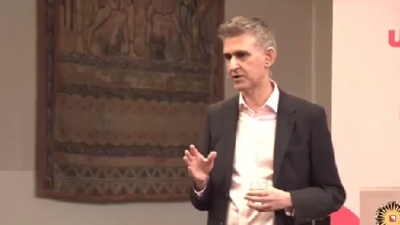
Prof. dr. Quassim Cassam
FilosoofCassam heeft gepubliceerd over karaktereigenschappen, houdingen en denkstijlen die voorkomen dat we kennis opdoen, behouden of delen. Hij heeft het label ‘vice epistemology’ (ondeugd epistemologie) geïntroduceerd het filosofische onderzoek naar de aard en betekenis van epistemologische ondeugden als bekrompenheid, overmoedigheid, dogmatisme en ‘wishful thinking’.
In zijn laatste boek, ‘Vices of the Mind: From the Intellectual to the Political’, schrijft hij over hoe het idee van vice epistemology een nieuwe manier is voor het begrijpen hoe dingen fout gaan in de wereld. Hiernaast heeft Cassam een website over zelfkennis en heeft hij over zelfkennis geschreven voor de New York Times.
Van 1986 tot 2004 was Cassam hoogleraar filosofie aan de Universiteit van Oxford. Hij studeerde Philosophy, Politics and Economics (PPE) aan Keble College, Oxford en ontving in 1985 zijn doctoraat voor zijn proefschrift over transcendentale argumenten.
----
English
Quassim Cassam is professor of philosophy at the University of Warwick.
Cassam has published work on epistemic vices: character traits, attitudes or thinking styles that prevent us from gaining, keeping or sharing knowledge. He has introduced the label 'vice epistemology' for the philosophical study of the nature and significance of epistemic vices such as closed-mindedness, overconfidence, dogmatism and wishful thinking.
In his most recent book, ‘Vices of the Mind: From the Intellectual to the Political’, he discusses the idea of epistemic vice as a new way of understanding how things go wrong in the world. Next to this, Cassam runs a website on self-knowledge and has written about self-knowledge for the New York Times.
From 1986 to 2004 Cassam taught Philosophy at Oxford University, where he was a Fellow of Wadham College. He studied Philosophy, Politics and Economics (PPE) at Keble College, Oxford and was awarded an Oxford doctorate in 1985 for a dissertation on transcendental arguments.







